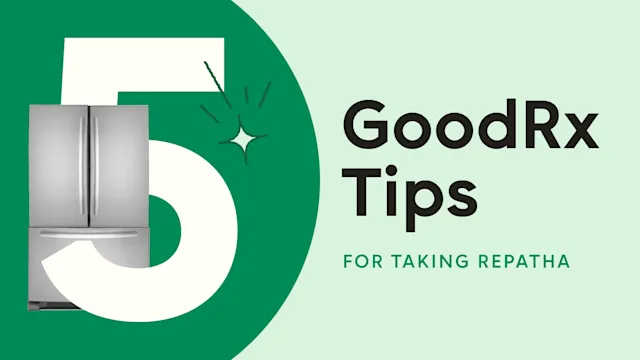Key takeaways:
Foods that lower cholesterol are usually high in soluble fiber, unsaturated fats, and plant sterols.
Healthy fats can actually lower your cholesterol level. These can be found in avocados, fatty fish, nuts, and olive oil.
The most heart-healthy diets include a variety of fruits, vegetables, whole grains, and plant-based proteins.
When you think of cholesterol-lowering foods, you might think of a low-fat diet. But it turns out that if you want to lower your cholesterol with your diet, there’s a lot more you can do besides reaching for the low-fat milk. And since high cholesterol levels are associated with increased risk for heart disease and strokes, everyone can benefit from choosing foods that lower cholesterol. Whether you’re looking for alternative ways to treat your high cholesterol — or just want to lower your risk for heart disease — we’ll review the most science-backed foods to lower cholesterol.
Best foods to lower cholesterol
There are lots of different ways that foods can lower your cholesterol. Before we get into a list of specific foods, it helps to review some basics. Heart-healthy foods are more likely to contain certain substances that lower cholesterol, such as:
Soluble fiber: Soluble fiber binds cholesterol in the intestine and prevents it from being absorbed into the bloodstream.
Unsaturated fat: This helps the liver break down cholesterol more easily.
Plant sterols: Plant sterols compete with cholesterols for absorption in the gut. So the more sterols, the less cholesterol gets absorbed. These are found in many nuts, grains, fruits, and vegetables.
It’s also important to remember that not all cholesterol is created equal. Most of the time, when people talk about cholesterol, they’re referring to low-density lipoprotein (LDL) cholesterol. This is the “bad” cholesterol that raises your risk for heart disease and stroke. A lot of these foods also raise your high-density lipoprotein (HDL) cholesterol — the “good” cholesterol that can actually lower your risk for heart disease and stroke.
Now, let’s take a look at 10 foods that help lower cholesterol.
1. Fatty fish
Here’s an example of a high-fat food that can actually be good for heart health. Fish contains important nutrients called eicosapentaenoic acid (EPA), and docosahexaenoic acid (DHA). EPA and DHA are essential fatty acids. This means that your body can’t make them on its own, and they need to come from your diet.
Studies have shown that fatty fish is better than lean fish when it comes to heart health: They can increase your good cholesterol and lower your bad cholesterol. The best dietary sources of EPA and DHA are fatty fish like:
Salmon
Mackerel
Sardines
Herring
Anchovies
2. Nuts
According to an analysis of 25 different studies, nut consumption lowers LDL (and total cholesterol) in a dose-dependent fashion. That means that the more you eat, the bigger impact it has on your cholesterol.
Not all nuts have gotten the official stamp of approval, though. The FDA has allowed for only certain nuts to claim a “heart-healthy” food status based on the evidence. These include:
Almonds
Hazelnuts
Peanuts
Pistachios
Walnuts
Pine nuts
3. Whole grains
If you like to start off your day with some hearty oatmeal, you’re in luck. Whole grain foods like oatmeal have been shown to lower LDL and total cholesterol in healthy adults.
One analysis of 24 studies of whole grains found oats to be the biggest winner when it comes to lowering cholesterol. But you still have plenty of other options to choose from. Some common whole grain foods include:
Brown rice
Quinoa
Oatmeal
Corn
Wheat
Whole grain bread
4. Fruits (especially berries)
Fruits are a great source of soluble fiber. And moderate fruit intake for children and adolescents can lower the risk of developing cholesterol problems. Berries are especially nutrient-rich and good for your heart. In addition to lowering your LDL, eating berries regularly can also help lower your blood pressure and blood sugar.
According to research, some good choices for fruit include:
Blueberries
Cherries
Lemons
Apples
Oranges
Grapefruit
5. Avocado
Avocados may be one of the best foods to lower cholesterol. One avocado a day can lower LDL cholesterol, according to research. And avocados can even be more effective than other diets that are low in saturated (bad) fats and high in monounsaturated (good) fats. So experts believe there may be extra benefits to avocado in particular. This may be due to the fact that avocados pack a triple-punch: They’re a great source of fiber, unsaturated fat, and plant sterols.
6. Dark chocolate
Dark chocolate is rich in flavanols, which can improve both blood sugar and cholesterol levels in people with diabetes. Best of all, in addition to improving heart health, dark chocolate may even give you a boost in mood. And most experts agree it’s healthier than milk chocolate because it has less added sugars.
7. Soy products
Soy has been a controversial ingredient for decades. But the most current research supports it as a heart-healthy food. A diet rich in soy has been shown to have a cholesterol-lowering effect in people with high cholesterol. Overall the decrease in LDL cholesterol is thought to be modest (about 3% to 4%), but eating soy can still be a great addition to a heart-healthy diet. The healthiest types of soy foods are those that are unprocessed. Common soy foods include:
Soybeans (edamame)
Tofu
Miso
Tempeh
8. Olive oil
Extra virgin olive oil (EVOO) is especially good at increasing good HDL cholesterol. This helps your body get rid of bad cholesterol. If olive oil is used as part of the Mediterranean diet, it can help further decrease LDL as well. And EVOO can be a good ingredient to use for small swaps in your diet. For example, next time you need some salad dressing, try reaching for some EVOO and salt (maybe mixed with a squeeze of lemon) to give an extra nutritious kick to your meal.
9. Vegetables (and not just green ones)
This one probably comes as no surprise. Just like fruit, vegetables are a nutrient-rich food that can help lower cholesterol. Not only are they filled with fiber and nutrients, but vegetables can increase the amount of “good” bacteria in your gut. These good bacteria can break down cholesterol, adding one more way that vegetables can lower cholesterol.
Any vegetable you choose to eat will likely have a healthy effect on your cholesterol levels. But some of the most nutrient-packed veggies include:
Broccoli
Kale
Spinach
Carrots
Bell peppers
Beets
10. Legume seeds
If you’ve never heard of the term “pulse,” you’re not alone. Pulses are a part of the legume family, but refers to the dry edible seed within a legume pod. Turns out that these seeds are excellent at lowering LDL cholesterol. Pulses that are especially helpful for lowering cholesterol include:
Beans
Chickpeas
Lentils
Peas
One final tip for choosing foods to lower cholesterol
One thing that the above foods have in common is that they’re all unprocessed foods. When you swap processed foods for more fresh options, you’ll naturally find yourself incorporating more cholesterol-lowering foods.
If you do better with a more scripted diet plan, the Mediterranean diet is typically a popular choice.
According to research, the Mediterranean diet not only decreases cholesterol, but also significantly reduces the risk of heart disease, strokes, and cancer. But it’s important to note that it’s often recommended by experts because it’s also been the most studied. The Mediterranean diet is all about eating a lot of plant-based, unprocessed foods. And so it can be adapted to any diet or food preference.
You don’t have to follow a specific diet plan when eating for your heart health. There are many foods and eating strategies that can be good for your cholesterol — and enjoyable to you.
The bottom line
If you’re looking for ways to use food to lower your cholesterol, you have a lot of great choices. And you don’t need to avoid fat. Fish, avocado, extra virgin olive oil, and nuts are all types of healthy fats that can improve your cholesterol levels. Combine them with fresh produce and whole grains, and you’ve got the ingredients for many delicious recipes that are good for your heart. And maybe you can reward yourself with some dark chocolate for dessert.

Why trust our experts?


References
American Heart Association. (2023). How a food becomes heart-check certified.
Berrougui, H., et al. (2015). Extra virgin olive oil polyphenols promote cholesterol efflux and improve HDL functionality. Evidence-Based Complementary and Alternative Medicine.
Bruckert, E., et al. (2011). Lowering LDL-cholesterol through diet: Potential role in the statin era. Current Opinion in Lipidology.
Busnelli, M., et al. (2018). Effects of vegetable proteins on hypercholesterolemia and gut microbiota modulation. Nutrients.
Darand, M., et al. (2021). The effect of cocoa/dark chocolate consumption on lipid profile, glycemia, and blood pressure in diabetic patients: A meta-analysis of observational studies. Phytotherapy Research.
Djoussé, L., et al. (2004). Fruit and vegetable consumption and LDL cholesterol: The National Heart, Lung, and Blood Institute Family Heart Study. The American Journal of Clinical Nutrition.
Dreher, M. L., et al. (2013). Hass avocado composition and potential health effects. Critical Reviews in Food Science and Nutrition.
Erdman Jr., J. W., et al. (2000). Soy protein and cardiovascular disease. Circulation.
Fernández, M. L., et al. (2005). Mechanisms by which dietary fatty acids modulate plasma lipids. The Journal of Nutrition.
Ha, V., et al. (2014). Effect of dietary pulse intake on established therapeutic lipid targets for cardiovascular risk reduction: A systematic review and meta-analysis of randomized controlled trials. Canadian Medical Association Journal.
Hagen, I. V., et al. (2016). High intake of fatty fish, but not of lean fish, affects serum concentrations of TAG and HDL-cholesterol in healthy, normal-weight adults: A randomised trial. The British Journal of Nutrition.
Hernáez, Á., et al. (2017). The Mediterranean Diet decreases LDL atherogenicity in high cardiovascular risk individuals: A randomized controlled trial. Molecular Nutrition & Food Research.
Hollænder, P. L., et al. (2015). Whole-grain and blood lipid changes in apparently healthy adults: A systematic review and meta-analysis of randomized controlled studies. The American Journal of Clinical Nutrition.
Huang, H., et al. (2016). Effects of berries consumption on cardiovascular risk factors: A meta-analysis with trial sequential analysis of randomized controlled trials. Scientific Reports.
Liu, J., et al. (2021). Association between fruit consumption and lipid profile among children and adolescents: A national cross-sectional study in China. Nutrients.
Minelli, P., et al. (2019). The Mediterranean Diet and cardioprotection: Historical overview and current research. Journal of Multidisciplinary Healthcare.
National Lipid Association. (n.d.). Adding soluble fiber to lower your cholesterol.
Sabaté, J., et al. (2010). Nut consumption and blood lipid levels. Journal of the American Medical Association Internal Medicine.
Sarwar, N., et al. (2007). Triglycerides and the risk of coronary heart disease: 10,158 incident cases among 262,525 participants in 29 Western prospective studies. Circulation.
Shin, J. H., et al. (2022). Consumption of 85% cocoa dark chocolate improves mood in association with gut microbial changes in healthy adults: A randomized controlled trial. The Journal of Nutritional Biochemistry.
Trautwein, E. A., et al. (2018). LDL-cholesterol lowering of plant sterols and stanols-Which factors influence their efficacy? Nutrients.
Tsartsou, E., et al. (2019). Network meta-analysis of metabolic effects of olive-oil in humans shows the importance of olive oil consumption with moderate polyphenol levels as part of the Mediterranean diet. Frontiers in Nutrition.
Ullah, A., et al. (2020). Important flavonoids and their role as a therapeutic agent. Molecules.
Vourakis, M., et al. (2021). The role of gut microbiota on cholesterol metabolism in atherosclerosis. International Journal of Molecular Sciences.
Wang, L., et al. (2015). Effect of a moderate fat diet with and without avocados on lipoprotein particle number, size and subclasses in overweight and obese adults: A randomized, controlled trial. Journal of the American Heart Association.














